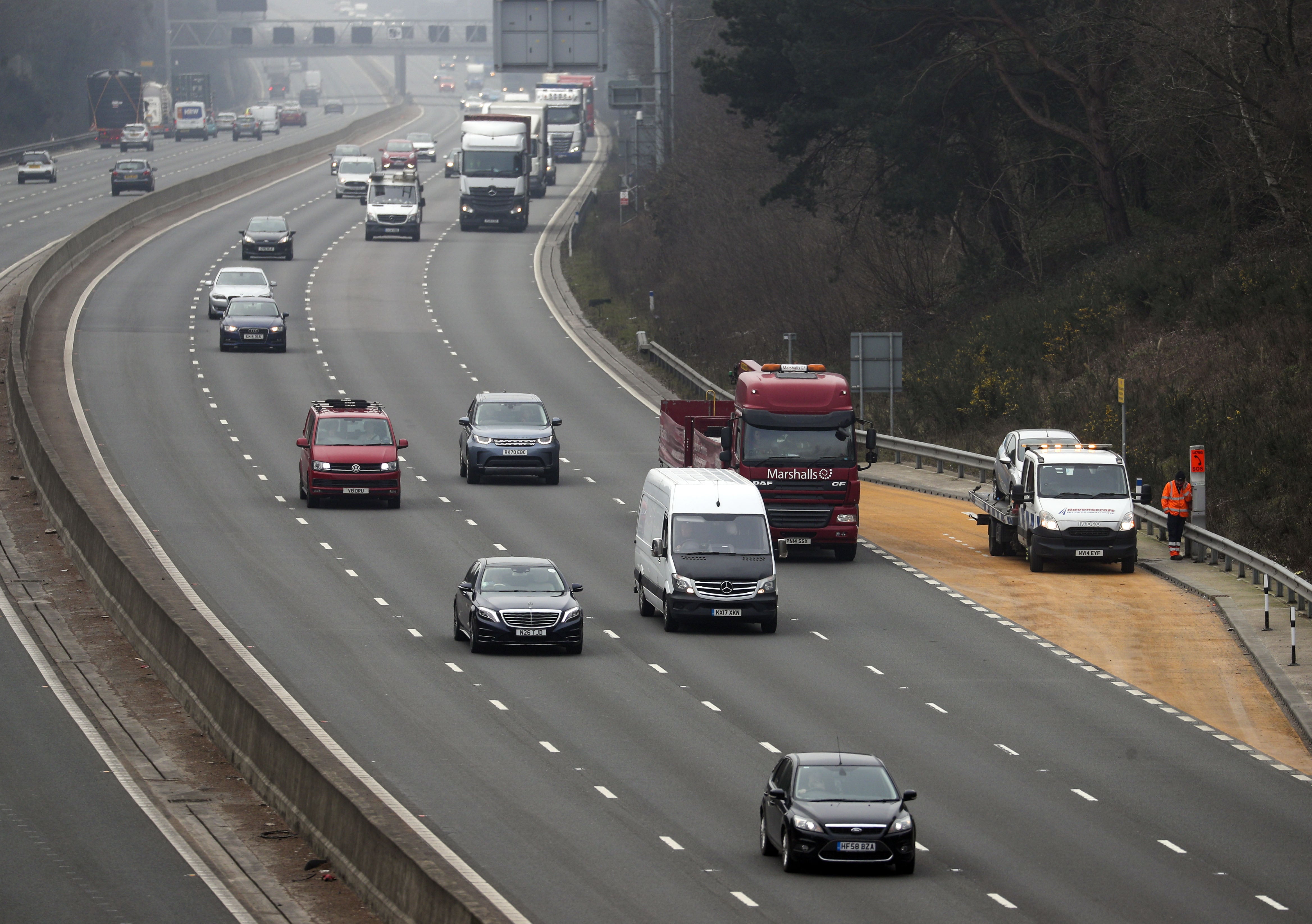Government acting ‘incredulously’ over smart motorways, says MP
Transport Select Committee member Karl McCartney criticised the decision not to scrap the schemes altogether.

Your support helps us to tell the story
From reproductive rights to climate change to Big Tech, The Independent is on the ground when the story is developing. Whether it's investigating the financials of Elon Musk's pro-Trump PAC or producing our latest documentary, 'The A Word', which shines a light on the American women fighting for reproductive rights, we know how important it is to parse out the facts from the messaging.
At such a critical moment in US history, we need reporters on the ground. Your donation allows us to keep sending journalists to speak to both sides of the story.
The Independent is trusted by Americans across the entire political spectrum. And unlike many other quality news outlets, we choose not to lock Americans out of our reporting and analysis with paywalls. We believe quality journalism should be available to everyone, paid for by those who can afford it.
Your support makes all the difference.A Conservative MP has accused the Government of acting “incredulously” by refusing to scrap smart motorways.
Transport Select Committee member Karl McCartney said the decision to pause the rollout of new motorways with the hard shoulder permanently removed “does not go far enough”.
The Department for Transport (DfT) announced on Wednesday that National Highways will halt the development of the all-lane running smart motorways until five years’ worth of safety data has been collected for schemes introduced before 2020.
This follows a report by the committee in November which said there was not enough information to justify continuing with new projects.
Mr McCartney, Tory MP for Lincoln, said: “It is clear to everyone, bar the Government and National Highways it seems, that these so-called smart motorways are dangerous and all should be scrapped immediately.
“Rather than the Government and National Highways incredulously trying to find out how to make more work, they should instead be holding a public inquiry to investigate the failings of the existing ones.”
Smart motorways feature various methods to manage the flow of traffic, including variable speed limits and using the hard shoulder as a live running lane.
They were first introduced in England in 2014 as a cheaper way of increasing capacity compared with widening carriageways.
There are about 375 miles of smart motorway in England, including 235 miles without a hard shoulder.
There have been long-term concerns about fatal incidents involving broken-down vehicles being hit from behind on sections with no hard shoulder.
The whole concept is a lazy, bean-counting and dangerously-held view of a means of trying to expand motorway capacity without spending any more of the huge amount of money raised by vehicle and fuel taxes
Mr McCartney went on: “Hard shoulders should be reinstated, before others are involved in serious and further fatal incidents.
“It has always been clear to me the whole concept is a lazy, bean-counting and dangerously-held view of a means of trying to expand motorway capacity without spending any more of the huge amount of money raised by vehicle and fuel taxes.”
The DfT said that, for existing smart motorways and those already being built, extra emergency refuge areas and technology to identify stopped vehicles will be added where possible.
The department is committing £900 million to upgrade them, including £390 million to install 150 more emergency areas over the next three years, representing around a 50% increase in places for motorists to stop if they get into difficulty.
Despite these steps, Claire Mercer, who husband Jason died in a crash on a smart motorway near Sheffield in 2019, announced that she will press ahead with legal action aimed at making hard shoulders mandatory for all motorways.
“While any measure to improve road safety is welcome, I feel that this is just the tip of the iceberg,” she said.
“I’ll continue to campaign for the reinstatement of hard shoulders as I believe this is what will improve road safety more than any retrofitting of technology.”
Law firm Irwin Mitchell, which represents Mrs Mercer, said “much more needs to be done before the public can be reassured that such roads don’t compromise safety to an unacceptable standard”.
Carriageways that will now not be turned into all-lane running motorways, pending the five-year safety data review, include Junctions 9–14 of the M3, the M40/M42 interchange, Junctions 20–25 of the M62, and Junctions 10–16 of the M25.
But work will continue on stretches that are already under construction, as they are more than half completed, the Government said, insisting that stopping progress on them now would cause disruption for motorists.
The conversion of seven dynamic hard shoulder motorways, where the hard shoulder is open at busy times, to all-lane running motorways is being suspended while alternative ways of operating them are being examined.
Transport Secretary Grant Shapps said that, while initial data shows “smart motorways are among the safest roads in the UK”, it is “crucial that we go further to ensure people feel safer using them”.